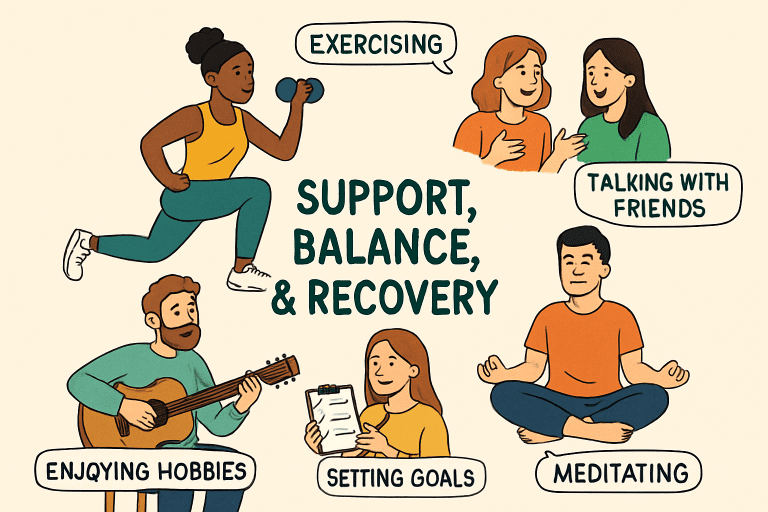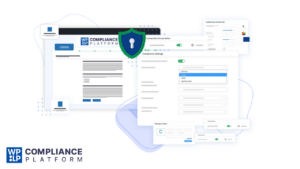Embracing recovery is a courageous step, but long-term sobriety requires more than just abstaining from substance use—it’s about building healthy routines and strong foundations for your mind and body. Discover how to foster resilience and well-being as you continue your journey, and find out more now about the resources and support available to help you. Implementing positive habits can transform daily life and secure ongoing progress in recovery. These proven strategies empower individuals to thrive, increase stability, and safeguard their health for the future. In this article, we’ll explore the most important healthy habits for life-long recovery.
Establish a Structured Daily Routine
Stability is a cornerstone of successful recovery. A structured daily schedule alleviates uncertainty and reduces opportunities for relapse triggers. Organizing your morning by outlining tasks and appointments gives every day a sense of purpose. Allocate blocks of time for self-care, hobbies, and personal development. Prioritize regular wake-up and bedtime hours to maintain circadian rhythm, supporting mental and physical health. Sticking to a routine helps disrupt unhealthy patterns and fosters self-efficacy during recovery.
Prioritize Physical Health
Physical wellness directly impacts recovery outcomes and emotional resilience. Regular exercise—such as walking, swimming, or yoga. So, boosts energy and endorphins, relieves stress, and supports mood stability. Nutrition matters, too: focus on balanced meals incorporating whole grains, lean proteins, fruits, and vegetables, all of which nourish your brain and body. Adequate sleep is vital, with most adults needing 7–9 hours nightly for optimal cognitive function.
Build a Supportive Network Healthy Habits for Life-Long Recovery
Recovery is not a solo journey. A robust network. So, built on family, friends, or peers in recovery—can offer encouragement and accountability. Attend recovery meetings such as AA or NA to share experiences and receive nonjudgmental support. Open communication with trusted individuals fosters trust and deepens relationships. Professional guidance from addiction counselors or therapists can provide crucial insight and tools for managing challenges.
Practice Mindfulness and Stress Management
Stress is a common trigger for relapse; managing it is key to sustained recovery. Mindfulness helps keep individuals present and better equipped to handle challenges. Incorporate daily meditation, even for just a few minutes, to calm your mind and reduce anxiety. Deep breathing exercises can regulate the nervous system, making them practical tools during challenging moments. Enjoyable activities such as painting, gardening, or music encourage relaxation and creativity.
Set and Pursue Personal Goals: Healthy Habits for Life-Long Recovery
Meaningful, achievable goals motivate and sustain progress. Identify interests or aspirations outside of recovery, such as mastering a new skill or taking a class. Break larger objectives into small, attainable steps to track progress and reduce overwhelm. Celebrate milestones along the way, rewarding yourself for perseverance and effort.

Engage in Healthy Hobbies
Enjoyable, meaningful hobbies help constructively fill time and reduce boredom or stress-related cravings. Try new activities like cooking, photography, or learning an instrument to discover what brings you joy. Join local clubs, sports teams, or creative classes to build camaraderie with like-minded individuals. Volunteering for community causes connects you with others and provides a broader sense of purpose and value.
Maintain Mental Health: Healthy Habits for Life-Long Recovery
Mental health goes hand-in-hand with physical and emotional well-being in recovery. Seek professional therapy or counseling to explore and address underlying issues; unresolved trauma or anxiety can increase relapse risk. Practice self-care regularly. So, journaling, connecting with nature, or mindful reflection are proven strategies. Stay connected to your support network and communicate openly about how you feel.
Develop Healthy Coping Mechanisms
Resilient coping skills are essential for handling cravings and setbacks. Identify triggers like emotional distress, social environments, or high-pressure situations and develop healthier responses like physical activity, mindfulness, and guided breathing. These habits fuel growth and resilience in recovery, allowing individuals to build a balanced life and maintain their commitment to sobriety.








